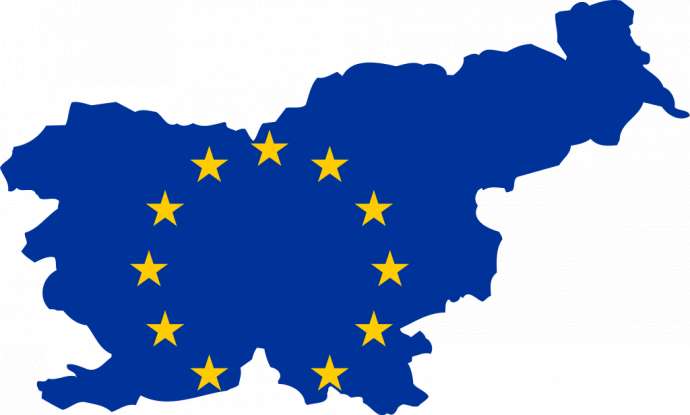STA, 16 December 2021 - The European Parliament has adopted a resolution on fundamental rights and rule of law in Slovenia which expresses concern over deep polarisation in the country and calls on prominent public figures to engage in a respectful and civilised public debate. The resolution was carried by 356 votes, as 284 voted against and 40 abstained.
The resolution sets out 18 points, one of which expresses "deep concern about the level of public debate, climate of hostility, distrust and deep polarisation in Slovenia, which has eroded trust in public bodies and between them".
It underlines that prominent public figures and politicians, including members of the government, have to lead by example and need to ensure a respectful and civilised public debate, free from intimidation, attacks, slurs and harassment.
It expresses concern over amendments proposed by the Justice Ministry to the state prosecution act that would allow retroactive changes to the appointment criteria for prosecutors, and lead to the risk of the two newly appointed prosecutors from Slovenia delegated to the European Public Prosecutor's Office being dismissed.
The resolution also calls on the Slovenian government to guarantee the editorial independence of the Slovenian Press Agency (STA) and cease all political interference and pressure on the editorial policy of the public broadcaster RTV Slovenia.
The document had been tabled by four political groups in the European Parliament, the socialists (S&D), liberals (Renew), Greens and the Left. The largest group, the European People's Party (EPP), which is also the political family of Slovenian Prime Minister Janez Janša, did not sign on.
Unofficial information indicates the EPP tried to have the resolution withdrawn from the agenda as two key issues that prompted it, the delays in the appointment of Slovenia's delegated prosecutors and the financing of the STA, have been resolved.
Sources have also provided unofficial information that the EPP had decided at a meeting on Wednesday to vote against. The majority of EPP deputies did in fact cast nay votes, but 33 abstained and one voted in favour.
Other nay votes came from the moderately eurosceptical European Conservatives and Reformists (ECR), the far-right Identity and Democrats (ID) and several independent MEPs.
Votes by Slovenian parliamentarians reflect their party affiliation as four S&D and Renew MEPs voted in favour of the resolution, three from the ranks of the EPP voted against and one EPP deputy abstained.
The Renew members, Irena Joveva and Klemen Grošelj, said in a joint statement that the resolution unfortunately placed Slovenia among countries such as Hungary and Poland "where the authorities have transformed democracy into authoritarianism."
"Nobody wants another member state whose authorities are undermining the EU's legal order," they said as they noted the parliament was well aware of the violations of rule of law and democratic norms in the country.
S&D MEP Tanja Fajon said the document was "not political but a statement of facts," whereas her fellow MEP Milan Brglez said it highlighted "open problems that we have in Slovenia." He expects the authorities to do everything to resolve all the issues pointed out in the resolution.
EPP members meanwhile argued the resolution was an attempt by the opposition to denigrate Slovenia on the European stage, an attempt that Romana Tomc said "utterly failed" since both principal claims against the government, concerning delegated prosecutors and the STA, had been resolved.
Milan Zver said the content of the resolution "does not interest anyone. Everyone understands that this is a domestic issue transposed onto the European floor."
According to Franc Bogovčič, the document is "substantively inconsistent and vacuous" since both main issues have been resolved, while the recommendations were "so general they might as well apply to multiple other member states."
The resolution is the latest in a series of European Parliament actions on Slovenia, following a debate on the state of democracy at a recent plenary and a debate on the Civil Liberties Committee.
In spring there was a debate on media freedom at a plenary, and in June the delays in the appointment of delegated prosecutors were on the agenda.







